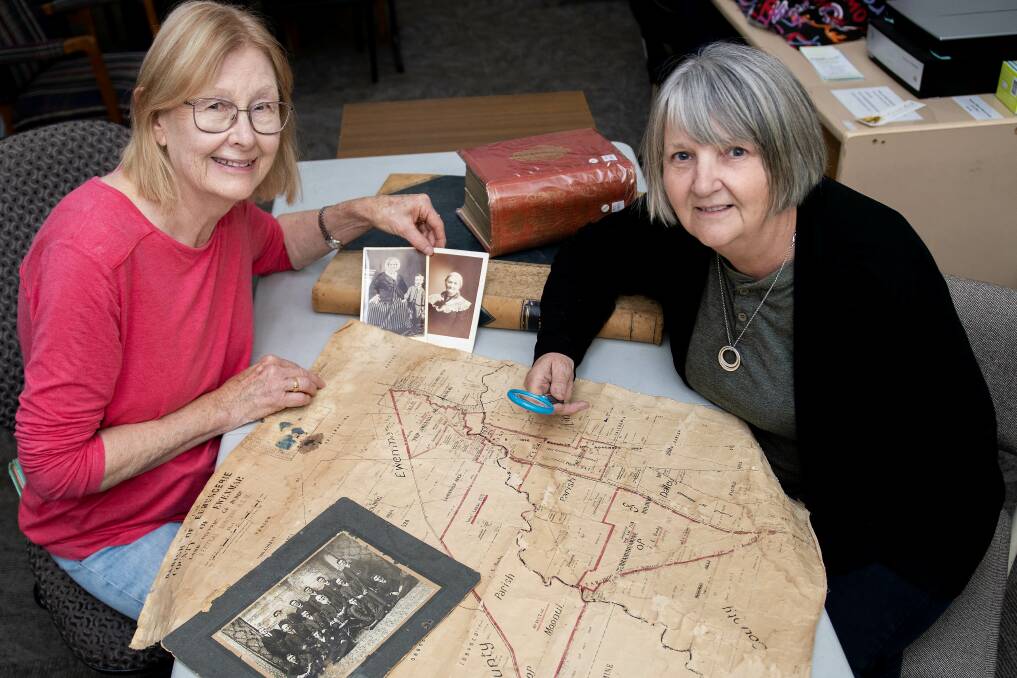Family history television shows like Who Do You Think You Are? are responsible for a surge in people researching their own ancestry.
Subscribe now for unlimited access.
or signup to continue reading
The hobby can be exciting and fun - and sometimes frustrating - and, according to Lyn Smith, vice president at the Dubbo and District Family History Society, they are a mystery to be solved.
"With the blossoming of interest in family history over the last decade or so, everybody thinks you just go to ancestry.com and find out all you need to know," Ms Smith told the Daily Liberal.
"Well, one of the ways of finding out an ancestry is to look at other people's family trees and you shouldn't ever take for granted because some people just grab whatever comes up and put it on their family tree as though it's gospel, and it's not.
"The important thing before you accept anything as fact is that you need lots of evidence to support it."
If it's a birth, this might be something in a newspaper report, and a birth or death record.

"The further back you go, the harder it gets - but it's more interesting," Ms Smith said.
The Dubbo family history society was formed in 1983 and Ms Smith said it's never been easier to access records, with many of them now online.
"In those days, the records were harder to come by. You had to write letters to people and wait, or you had to actually go to where the records are kept and look at them physically. So, since we've been able to do it online, that makes it a lot easier," Ms Smith said.
IN OTHER NEWS
She said many people become more interested in their family history as they got older. Whether this is because we have more time on our hands, see our own mortality, or have a longer history of our own to ponder, it's worthwhile getting as much information from your own parents - if you can - before they die.
Ms Smith provided the following tips to begin your ancestry journey.
1. Always start with what you know
You just need to know something to start. You could find a family history group in your region and approach them with a summary of what you know about your parents and grandparents. They might ask you to put the details in a pedigree chart and together you could begin by looking at the births, deaths and marriages register for more clues. The rule of thumb is to go back one step at a time: it could be your grandparents names, when they were married, and how many children they had.
2. Don't take things for granted
Before you accept things as fact, you need the evidence to support it. This should be at least two records, for example a newspaper report, a birth or death record, or something on a headstone. Don't accept anything you see on anybody's family tree - especially on ancestry websites - unless you have the records to support it. The same goes for your own family history - don't add anything until you have the evidence to support your claim.
3. Learn to decipher hard-to-read handwriting
There are challenges in trying to read people's handwriting on the old records. If you look at the whole page, you can look for other swirls that look like that swirl and you can see the context. With time, you will get better and improve your skills.
4. Don't get discouraged by common surnames or outdated names
The people who are the easiest to trace are usually that way because they did something interesting: they were noble, rich, or a criminal. But if you're an ordinary person it's a bit harder. There can be multiple spellings of surnames in the records, and some names that aren't very common anymore. Many people were illiterate, and were saying their name to someone else to write down. Try looking at siblings for commonality. Sometimes, there won't be a link - you might need to move onto something else.
5. Book into some training courses
The Dubbo and District Family History Society provides training courses on reading war records, accessing census records and accessing historical newspapers. Some local history societies provide training on accessing ancestry websites to begin your journey that way. The message is to have fun: your family's history is a mystery to be solved.
The Dubbo and District Family History Society will be hosting an event called Share Your Story, during which group member Di Chase will share stories of the adventures of her ancestor Alexander Barclay Black in bringing the salmon industry to Australia. The event will take place at the Western Plains Cultural Centre on Friday, October 20, 2-4pm. The cost is $7.
Reading this on mobile web? Download our news app here. It's faster, easier to read and we'll send you alerts for breaking news as it happens.


